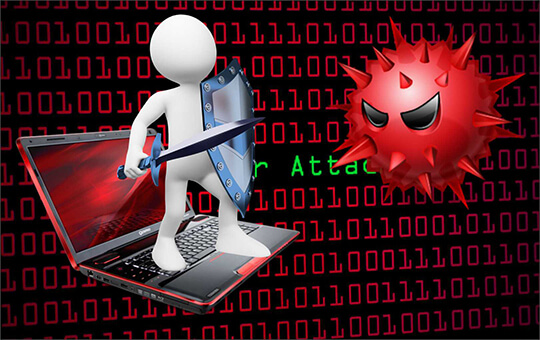As the boundaries between digital and real life diminish, more of your personal data can be found on your computer and online accounts. Due to the fact that people practically use cell phones to run their lives nowadays and that they sync their mobile apps with PC apps, anyone who hacks your computer or installs malware on it to track your activity will have unlimited access to a lot of sensitive information.
The information can range from embarrassing tidbits you don’t want anyone to know to critical information such as credit card details. Damage control in the event of such an attack is expensive and can include hiring an attorney to help you navigate the legal issues that arise.

Table of Contents
Here’s a checklist of some of the things you should do to keep viruses and hackers off your computer:
Install Antivirus Software
One of the first things you should do when you buy a computer is to install antivirus software. There are several companies offering antivirus software with some being free and others paid. For guaranteed security, you should always go for a premium product. Free antivirus software often has limited functionalities and the providers don’t have much of an incentive to keep their service working in tip-top condition.
You should only run one antivirus program at any given time. Running two or more antivirus programs may slow your computer down and can be even counterproductive as the programs might clash.
Since computer viruses and malware are constantly evolving, your antivirus software provider will always be updating their software to ensure that it is capable of fighting emergent viruses and malware. For this reason, allow your antivirus software to automatically look for updates.
Install Anti-Spyware Software
Antivirus software may not be able to detect and remove certain malwares. Fortunately for you, there are anti-spyware tools that can detect and resolve these threats. MalwareBytes and Spybot are some of the most popular brands you can trust. You will need to scan your computer and destroy spyware regularly to be safe.
Uninstall Software Abandoned by Developers
As mentioned earlier, programs that have not been updated for a long time are particularly vulnerable to attacks. If you have programs on your computer that have been abandoned by their developers, you should uninstall them immediately and find alternatives. This also applies to web browser extensions that have not been updated for a long time.
Turn on Your Firewall
Your firewall should always be on. The function of the firewall is to act like gate security. It monitors internet traffic entering and leaving your computer. It has the powers to grant or deny entry and to allow or deny exit.
If there’s something fishy going on, like a good gate security officer, the firewall will alert you – the owner of the property. When using unsecured connections, you can set your firewall to block certain apps from accessing the internet and disallow file sharing.
Allow Antivirus to Scan Your Emails
Viruses can easily spread through email attachments. Most antivirus software scan emails by default. If email scanning is not a default setting on your antivirus software, specifically change the settings to allow email scanning. It also goes without saying that you should avoid clicking suspicious links from spam emails.
Configure Software and Programs to Update Automatically
The bad guys on the internet are a dedicated lot. They are always looking for ways to exploit vulnerabilities and they create new malwares as soon as the existing ones can’t work. Any program you download will certainly have some loopholes that can be exploited by the bad guys.
Developers always release updates to seal these loopholes as soon as they identify them. It is absolutely essential that you download these updates as soon as they are made available. If you haven’t already done it, you can have your system configured in such a way that all programs automatically look for and install new updates.
Get Two-Factor Authentication
You can make it harder for a hacker to gain access to your online accounts by using multi-factor authentication. The most common multi-factor authentication in use is two-step verification or two-factor authentication. It works by having software generate a unique code and sending it to one of your devices such as your phone whenever you want to login into one of your online accounts. This makes it harder for an attacker who does not have access to your phone to gain access to your online account even when they figure out what your password is.
Schedule a Full System Scan
Most antivirus and anti-spyware software usually do quick scans that sample various files to evaluate the health of your PC. Suck scans aren’t comprehensive and may miss some serious threats.
If you want to ensure that no threats ever go undetected, you should perform full system scans regularly. You can configure your antivirus and anti-spyware software to perform full scans at specific times on specific days of the week.
It is very important that you protect your computer. Luckily, the adoption of certain computer security best practices and the use of certain tools can ensure that you reliably fend off all external attacks on your computer. Keep these tips in mind before it’s too late.




























